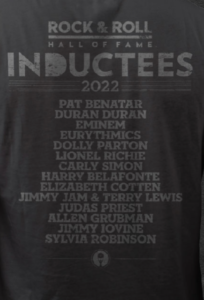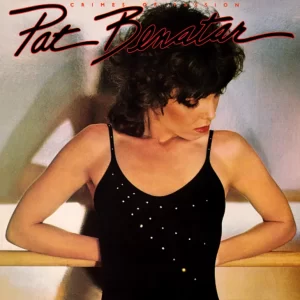Paul McCartney
Saturday morning.
May 7, 2022Respite from the tilt toward darkness our planet collectively shares.
Peace.
Compassion.
Love.
Our spiritual compass.
‘It is only with the heart that one can see rightly; what is essential is invisible to the eye.’ -Antoine de Saint-Exupéry.
[My thesis.-dayle ❀]
From poet Pádraig Ó Tuama:
“Friends, there are many things that crowd your attention. And many things deserve your attention. May you find the space to pay attention to what is important, to feel the feel of feelings, and to find ways to respond with action, care, justice, kindness, time, and whatever else is needed. Beir bua.” [Bring Victory]
Sharing a beautiful curation from journalist and author Dan Rather and his writing partner Elliot Kirschner. They title their compilation, ‘Smile for Saturday’ featured on their ‘Steady’ published on the Substack platform. Subscriptions are open. -dayle
Blackbird
Music has a way of speaking to us, across genres, across performers, and across the years. It is a conversation that builds from what was said before and evolves over time. All these thoughts flooded forth when we discovered a video of the brilliant musician Jon Batiste performing his version of the Beatles song “Blackbird.”
The occasion for the 2016 performance was the 52nd anniversary of the Beatles’ television debut on “The Ed Sullivan Show,” and Batiste was appearing on the very same stage as they had. As many of you likely know, the Ed Sullivan Theater is now home to “The Late Show with Stephen Colbert,” where Batiste serves as musical director.
Batiste plays “Blackbird” on the piano, whereas the song’s co-writer Paul McCartney (John Lennon shared the writing credit) played his version on the guitar. The musical style also differs, and so does the delivery of the lyrics. But there is a kinship of evocative musicality linking this version to McCartney’s that brought a big smile to our faces. Batiste’s Juilliard-honed abilities as performer and arranger are on full display. So, too, is the genius of the original.
At a time when we are fractured, this song made us feel whole. At a time when we are unmoored, this feels rooted. At a time when we see far too many acts of hate, this feels like a tribute of love.
Left in awe of this performance, we decided to dig a little more into the history of “Blackbird.” And things got even more interesting. It turns out the lineage of the song goes back well before the 1968 White Album on which it first appeared — as in centuries back. “Blackbird” was inspired by Johann Sebastian Bach — more specifically, his famous “Bourrée in E minor.” We will let Sir Paul himself tell you the story.
Bach’s piece was originally written for the lute but has since become a staple for classical guitar. If you are still with us and want to continue this musical journey, here is a performance of the piece on its original instrument.
Through our research we became a bit obsessed with Batiste, his story, and his music. We encourage you to listen to more from this remarkable talent.
‘Innocent bystander.’ Thomas Merton: I am no longer smiling … for I do not think the question of our innocence can be a matter for jesting, and I am no longer certain that it is honorable to stand by as the helpless witness to a cataclysm, with no other hope than to die innocently and by accident, as a nonparticipant. ♀︎
🧟♀️
October 31, 2020A little Halloween ditty from Allen Ginsberg, Paul McCartney, and Philip Glass. First published in 1995, and recorded in 1996. Ginsberg died one year later.
‘The Ballad of the Skeletons”
The American political climate from which it arose bears a striking resemblance to the one we’re living in today. “I started it,” Ginsberg told Harvey Kubernik of The Los Angeles Times in 1996, “because of all that inflated bull about the family values, the ‘contract with America,’ Newt Gingrich and all the loudmouth stuff on talk radio, and Rush Limbaugh and all those other guys. It seemed obnoxious and stupid and kind of sub-contradictory, so I figured I’d write a poem to knock it out of the ring.”
[Open Culture]
🕸️🎃👻 🕸️🎃👻 🕸️🎃👻 🕸️🎃👻 🕸️🎃👻 🕸️🎃👻 🕸️🎃👻 🕸️🎃👻 🕸️🎃👻 🕸️🎃👻
H A P P Y
H
A
L
L
O
W
E
E
N
Be safe.
Vote.
Blackbird.
August 2, 2016‘Blackbird singing in the dead of night,
Take these sunken eyes and learn to see
All your life, you were only waiting
for this moment to be free.’
-Paul McCartney, ‘Blackbird’
“I read that McCartney wrote this song about the civil rights struggle after reading about American race riots. He said he got ‘The idea of using a blackbird as a symbol for a black person. It wasn’t necessarily a black bird, but it works that way…Take these broken wings was very much in my mind…it was purposely symbolic.’
McCartney said he penned it in his kitchen in Scotland not long after an incident when the US federal courts forced the racial desegregation of the Little Rock Arkansas, school system.
It is said that freedom begins in the heart.
Many of us are still waiting to be free – – liberated from ourselves – – from our perceived limitations. We yearn for freedom from our patterns of holding ourselves captive and remaining bound to our likes and dislikes, locked in an unwillingness to expand beyond our fears and the past. Freedom from a limiting self-identity is spiritual freedom. Regardless of circumstances, we are called to freedom – – to live from the heart – – in more love, less fear.”
-Rev. Andriette Earl, Heart and Soul Center of Light in Oakland, California




